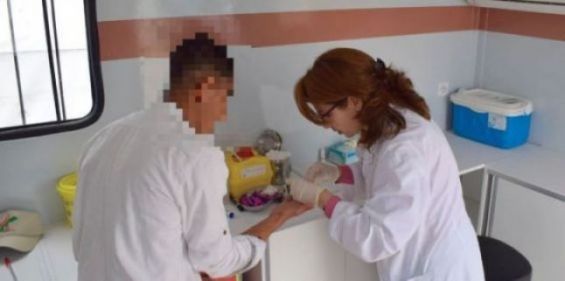In Morocco, only 20% of the estimated 29,000 people living with HIV in 2011 were aware of their HIV status. This number is affected by the HIV testing opportunities that were missed by people who actually sought care during the period of probable infection, according to new study on the topic.
Published by BMC Infectious Diseases earlier this month, the study conducted by 13 researchers, is the first of its kind to track the testing history of people living with HIV 3 years prior to diagnosis.
Data for this study was collected between May 2012 and December 2013 from patients newly diagnosed with HIV in six Moroccan infectious diseases departments, which covered more than 85% of the people in care for HIV in the Kingdom.
Findings show that nearly «two out of three patients attended healthcare facilities during the period of probable HIV infection». Many of the patients with HIV indicators who sought care received no HIV testing offer, it found.
Behavioral indicators rarely addressed
The study reveals that these people with missed opportunities could be patients who would not have mentioned their behavior. Here, researchers refer to people who have «multiple sex partners, condomless sex with casual partners or MSM» and who hide it «for fear of stigma or discrimination, or because they did not consider themselves to be at risk».
«Of men who have sex with men, 83% did not address their sexual behavior with their healthcare provider, 11% were not offered HIV testing, while 6% were offered HIV testing after reporting their sexual behavior to their provider», the study reports.
Likewise, «among the remaining MSM who had an opportunity for HIV testing, only one out of three was offered a test. In the same way, 69% of people who sought care for HIV-related clinical conditions were not offered an HIV test», researchers said.
One of the findings of the study is the fact that no information was collected on sex workers, although some women, who represented 11% of the study population, subsequently reported having a median of 40 sexual partners over the period studied and also reported more sexually transmitted infections and more behavioral indicators than others. They were not offered a screening test.
«Behavioral indicators were rarely addressed with the healthcare provider. On the other hand, the physician did not ask about at-risk behaviors and offer a test».
Self-testing
«Our study showed that people who had been tested once in their lifetime were less likely to have a missed opportunity for testing compared to those who had never been tested before», researchers reported.
It shows that in 2012, the Ministry of Health implemented a new policy which aimed to strengthen HIV counseling and testing through a higher number of voluntary testing centers and the implementation of a mobile testing strategy. «Access to HIV testing has increased significantly with the introduction of community-based testing through rapid tests», they reported.
To strengthen and further expand HIV testing services and overcome barriers to HIV testing, the study suggests testing «in pharmacies to reach a large population given that pharmacists were consulted by 31% of our study population».




 chargement...
chargement...












